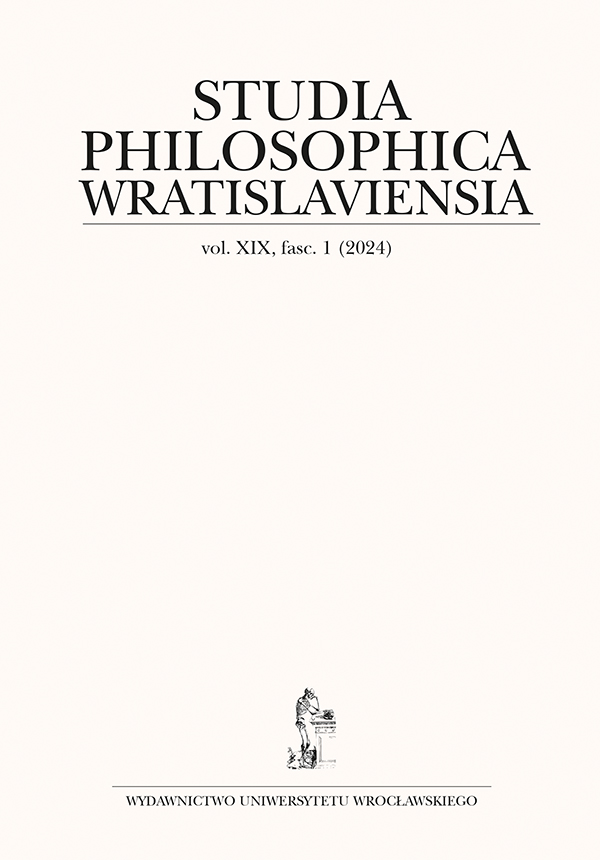

Artykuły

The question of how the relationship between metaphysics and theology should be understood is one of the main topics of debate on the agenda of philosophers and theologians from Aristotle (d. 322 BCE) to Avicenna (d. 428/1037), from Avicenna to the late Islamic theological tradition, and even to medieval Jewish and Christian thought. Avicenna criticized Aristotle for identifying metaphysics with theology and presented a new perspective on the relationship between those two disciplines. He argues that God is not the subject but the goal of metaphysics, in other words — metaphysics is an ontological science in terms of its subject matter and a theological science in terms of its goal. In Islamic thought after Avicenna, the relationship between metaphysics and kalam continued to be one of the most heated topics of debate. Trying to explain the relationship between those two disciplines, thinkers such as Imam al-Ghazali (d. 505/1111), Shams al-Din Samarqandi (d. 702/1303), and Sayyid Sharif al-Jurjani (d. 816/1413) made a distinction between “Islamic science and rational science” and argued that metaphysics is an intellectual science while kalam is a religious (Islamic) science. On the other hand, Siraj al-Din al-Urmawi (d. 682/1283), who dealt with the relationship between metaphysics and kalam in his treatise On the Difference between Metaphysics (God-Science) and Kalam, revised Avicenna’s approach and criticized theologians who tried to explain the problem in terms of the distinction between religious and rational sciences. The aim of this article is to analyze Avicenna’s and Urmawi’s views on the relationship between metaphysics and theology, taking into account the historical-problematic context of the issue.
Acar R., İbn Sînâ’ya Göre Metafizikte Teolojinin Yeri, [w:] Uluslararası İbn Sînâ Sempozyumu: Bildiriler II, M. Mazak, N. Bayhan (eds.), İstanbul, s. 161–169.
Aertsen J.A., Why is Metaphysics Called “First Philosophy” in the Middle Ages, [w:] The Science of Being as Being: Metaphysical Investigations, G.T. Doolan (ed.), Washington, DC 2012, s. 53–69.
Arystoteles, Analityki wtóre, [w:] Arystoteles, Analityki pierwsze i wtóre, tłum. K. Leśniak, Warszawa 1973.
Arystoteles, Metafizyka, tłum. K. Leśniak, Warszawa 1984.
Cürcânî S.Ş., Şerhu’l-Mevâkıf I, tłum. Ö. Türker, İstanbul 2011.
Erdem E., İslam Düşüncesinde Kelam-Metafizik Diyalektiği, [w:] Kelâm İlmi ve İslam Hukukunda İçerik Sorunları, İ. Çelebi, M. Mehmet Bulğen (eds.), Istanbul 2017, s. 257–275.
İmam Gazâli, el-Mustasfa (İslam Hukukunda Deliller ve Yorum Metodolojisi) I, tłum. Y. Apaydın, Kayseri 1994.
İbn Sînâ, Kitâbu’ş-Şifâ I. Metafizik, tłum. E. Demirli, Ö. Türker, Istanbul 2004.
İbn Sînâ, Kitâbu’ş-Şifâ II. Analitikler, tłum. Ö. Türker, Istanbul 2006.
Türker Ö., Bir Tümdengelim Olarak Şâhitle Gâibe İstidlâl Yöntemi ve Cüveynî’nin Bu Yönteme Yönelttiği Eleştiriler, „İslâm Araştırmaları Dergisi” 18 (2007), s. 1–26.
Türker Ö., Eş‘arî Kelâmının Kırılma Noktası: Cüveynî’nin Yöntem Eleştirileri, „İslâm Araştırmaları Dergisi” 19 (2008), s. 1–24.
el-Urmevî S., Metafizik (Tanrı-bilim) ve Kelâm Arasındaki Fark Üzerine, tłum. E. Erdem, „İslami Araştırmalar Dergisi” 27 (2016), s. 442–447.
Wolfson H.A., The Philosophy of Kalam, Cambridge 1976.